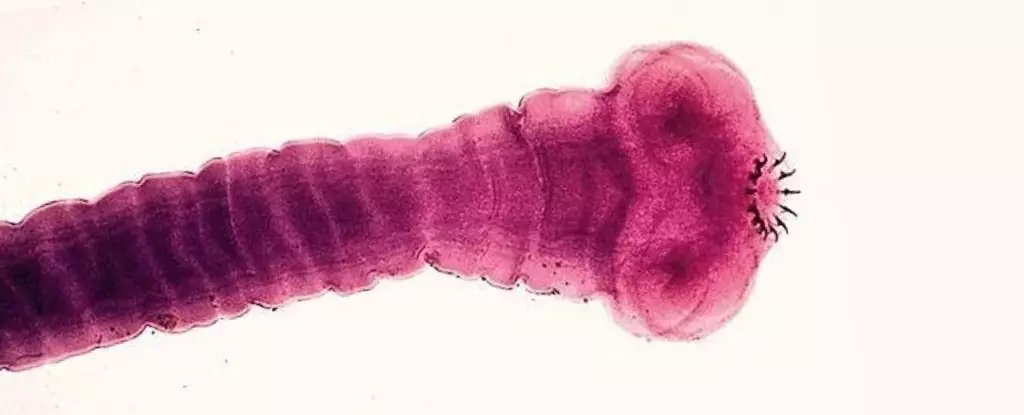A 52-year-old man from Florida sought medical attention due to worsening migraines over the past few months. Upon further investigation through a CT scan, it was revealed that the root cause of his severe headaches was multiple cysts spread throughout his brain. To the surprise of the doctors, blood tests confirmed that these cysts were larval cysts of the pork tapeworm, Taenia solium, leading to the diagnosis of neurocysticercosis.
The case report highlights the puzzling aspect of the patient’s infection. Despite no recent travel to high-risk countries or exposure to contaminated food or water, the man confessed to a long-standing habit of consuming undercooked, floppy bacon throughout his life. While this could have explained the taeniasis resulting from ingesting undercooked pork, it does not clarify how the cysts made their way into his brain. The authors speculate that the cysticercosis may have been transmitted through autoinfection, following improper handwashing practices after contracting taeniasis.
Neurocysticercosis is a rare condition outside regions with poor sanitation practices, and its presence in the United States was previously unheard of. The manifestation of this disease can extend far beyond migraines, with a majority of patients experiencing seizures. Depending on the location of the cysts within the brain, symptoms can vary from mild to severe, including neurological deficits, increased intracranial pressure, and cognitive decline. The authors emphasize that any significant changes in migraine patterns should prompt further investigation for underlying pathologies.
The patient underwent treatment with anti-parasitic and anti-inflammatory medications, resulting in the clearance of the brain cysts and resolution of his debilitating headaches. The medical team expressed concerns about the possibility of infection from pork in the United States, emphasizing the potential public health implications of this case.
The case study sheds light on the intricate nature of neurocysticercosis and its unexpected presentation in a patient with no apparent high-risk exposures. It serves as a reminder of the importance of proper food preparation practices and hand hygiene to prevent similar infections. The successful management of the patient highlights the significance of early detection and intervention in combating parasitic diseases.


Leave a Reply